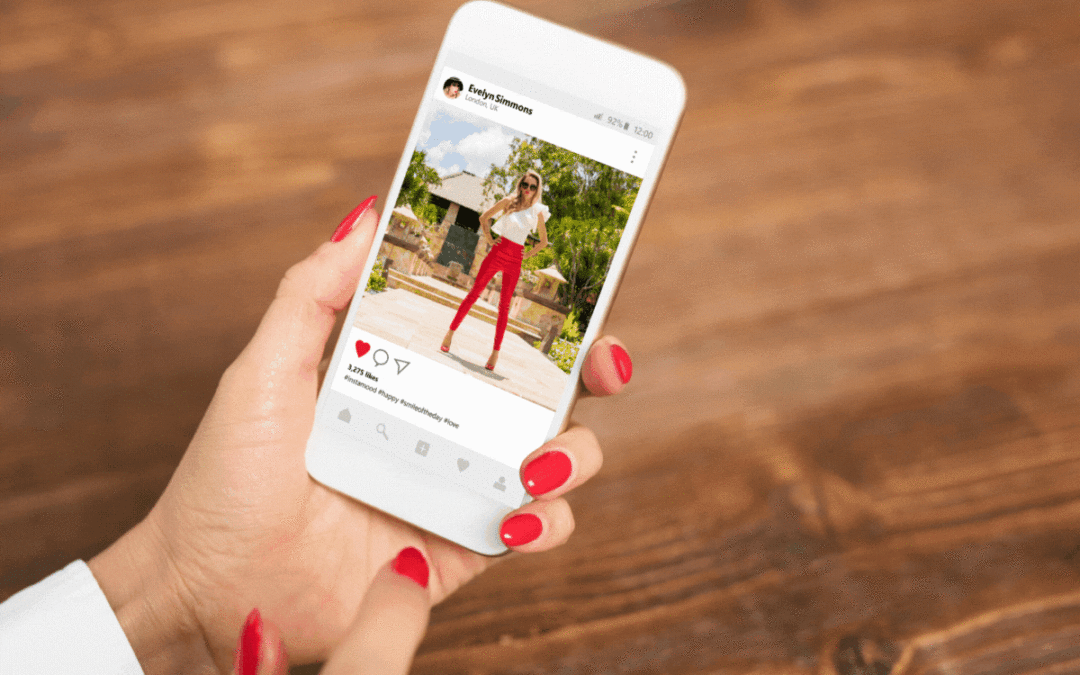Do you feel a little insecure about your relationship? If so, it's not a surprise, with over four billion easily accessible social media users and people being unclear about social media red flags in relationships.
The internet made meeting people easier than ever. This creates numerous challenges for established relationships.
Temptation literally sits at our fingertips, and not everybody can resist it. So, how do you know whether or not your worries about your partner's online activities are warranted?
Let’s take a closer look at social media red flags in relationships and the answers to other pressing questions.
Digital Affair Stats
Let's start off by looking at how many people cheat on their partners. The Journal of Marriage and Divorce published that 70% of married Americans cheat at least once.
Statistically, more men cheat compared to their female counterparts. One study concluded that over 10% of cheaters spark their love affairs online.

These statistics cover physical cheating. But when you enter an online playground, what are the rules exactly? It's difficult to statistically cover that which everybody defines differently.
Social Media Red Flags in Relationships
Relationship rules can vary, especially when it comes to the internet. You may run into many gray areas because of this.
What are the red flags on social media? Red flags call for a hard stop and serious conversation before moving forward in a relationship.
Certain behaviors stand out and should raise concern. If you notice the following relationship red flags, stop and assess the situation with your partner.
Know that these serve as general rules. It's okay to create different rules for your relationship when both parties agree.
Refusing Connection
If you sent your partner a connect request, they should accept it within a reasonable amount of time. If they do not, let them know that you sent it to make sure it did not simply get lost in the shuffle.
Your partner should want to connect with you on their social media platform if they use it at all. This allows you both to scroll through pictures of one another and get a sense of their interests.
If they tell you that they do not want to link up online with you, ask why. Listen carefully to their response because they may flat-out tell on themself.
Many say, "I don't want it to cause problems." This tells you that they behave in a way that you will not approve of, and they do not plan on changing it.
Tell your partner that accepting your online request would mean a lot to you. If they still refuse, then your partner does not mind making you feel shut out of their life.
Appearing Single
You should never feel hidden in your relationship. People with pure intentions do not hide their partners, period.
To hide something means that they do not want others to know about it. This typically suggests that somebody will get upset and usually indicates an affair.
It could also mean that somebody important in their life does not want them dating you. While different than cheating, it's still a problem. A person should stand up for the relationship that they choose.
An alternative explanation is that your partner feels embarrassed about dating you. This actually raises more concerns than cheating because they outwardly reject you. This requires counseling to continue growing together in the relationship.
Many dishonest people will claim that they like to keep their personal life private. This does not mean that they appear single.
Privacy looks like keeping conversations out of the public eye. People do not need to know every step of your relationship.
However, letting others know more about your relationship shows respect and concern for the relationship. Sharing a picture together every now and again does not violate privacy either.
Constant New 'Friends'
Can you make new friends in a relationship? Absolutely—in an appropriate setting. Healthy individuals meet people at work or in other spaces and make connections.
However, seeking out and accepting new friendships from singles crosses a line. People often add new friends that they find attractive as a way to get noticed.
If you notice your partner's friend list beefing up, take a look. You may see that they simply network well in their field of work, in which case you can rest easy.
But see that red flag if they suddenly add new 'friends' that they don't actually know. This behavior suggests that they are keeping their options open.
Blatant Flirting
In-person, humans may flirt subconsciously. Seeing an attractive person may make you blush, turn your head, or giggle before you even recognize your behavior. If it happens in passing, no harm, no foul.
Online, however, you either flirt intentionally or you don't. It takes conscious thought to write out and send a message.
If you see your significant other sending flirtatious messages, do not let them make you feel crazy. People flirt to attract attention from the other person and to let them know they are desired. Doing this online is disrespectful at best.
Liking Inapropriate Pictures
Feeds trap the best of us in mindless scrolling. We come across numerous pictures of our friends and favorite celebrities.
Liking the pictures offers positive feedback and lets the other person know we are watching. While usually innocent, it can cross a line.
It's a green flag if they are only liking pictures such as family photos, business headshots, or other wholesome pictures. Raise a yellow flag, though, if you notice them liking the same person's pictures all the time.
Wave a red flag if they like suggestive photographs of everyday people. This may come up as nudes, underwear shots, swimsuit pictures, or even fully clothed photographs with a provocative pose or look.
Your partner can briefly enjoy a scroll past a picture without letting the other person know they liked it. Liking it alerts the other person to their desire, and that breaks relationship boundaries.
Hidden Messages
On most social media platforms, you can delete messages or put your messenger into a mode that hides your conversation. If your partner does this, you should worry.
Sure, one might hide messages about a surprise for their partner. But they most likely trust that their significant other will not snoop in this case.
If you see them deleting messages or using a private messaging mode, then they are probably either cheating or involved in something illegal.
Without snooping, you can tell if your partner hides messages. You might notice their message screen appears darker or physically see them delete a message.
If they do this often, they may act nervous when opening their phone and turn the screen away from you. You may see them clicking buttons to delete the message after typing.
Only Online in Private
Some people do not keep a social media profile, and that's perfectly okay. However, if you know that your partner uses social media regularly, yet they never open it in front of you, it's a red flag.
During intimate times, you and your partner should pay full attention to one another. Many people view it as rude when somebody peeks at their social media on a date or in the middle of a conversation.
But, with it at our fingertips, your partner will open their account in front of you every now and again, whether it's to post a cute date picture or to do a quick scroll when you're just sitting around. If you never see them log on, but they are on social media a lot when you are not around, then they are probably doing things that they shouldn't.
When to Post Your Relationship
Social media adds an extra element of awkwardness to the beginning of a relationship. As if dating doesn't create enough questions about what steps to take and when the internet adds a whole new element.
On the one hand, you don't want to appear overzealous and scare your partner away, but on the other hand, you want your partner to understand your level of commitment.
Plus, in a healthy relationship, you want to show off your amazing catch to the world. So, when do you post your relationship online for others to see?
Follow the natural flow of the relationship. When you begin introducing this person to friends and family, you may also tag them in a post or picture.
When things seem serious enough to make your relationship official, why not let people know online? While it may seem juvenile, this also stops advances from unnecessary temptations.

Is Sliding Into DM's Cheating?
Sliding into a person's inbox doesn't always count as cheating. A partner can innocently congratulate an old friend, send condolences, or share a quick story that brought the other person to mind.
This turns into cheating when they hide conversations, make advances on the other person, or schedule secret meetups. Even seemingly innocent conversations may turn into an affair when it doesn't seem to end. Also, one deep conversation requires intimacy.
Can Social Media Destroy Relationships?
Social media presents many temptations and complicates things. However, it cannot destroy a relationship.
Discuss boundaries with your partner often and openly. This helps you discover your red flags and discuss rules within the gray areas. One party deciding to break these boundaries destroys relationships.
Save Your Relationship With Counseling
When your partner cheats, it can feel devastating. But many people who find social media red flags in relationships still choose to try. Love can win after infidelity if both parties make an effort toward healing.
The cheater needs counseling to help them discover why they cheat and how to stop. And couples therapy can help heal the other partner's wounds.
We want to help you build a happier and healthier relationship. Reach out to book your first session.




